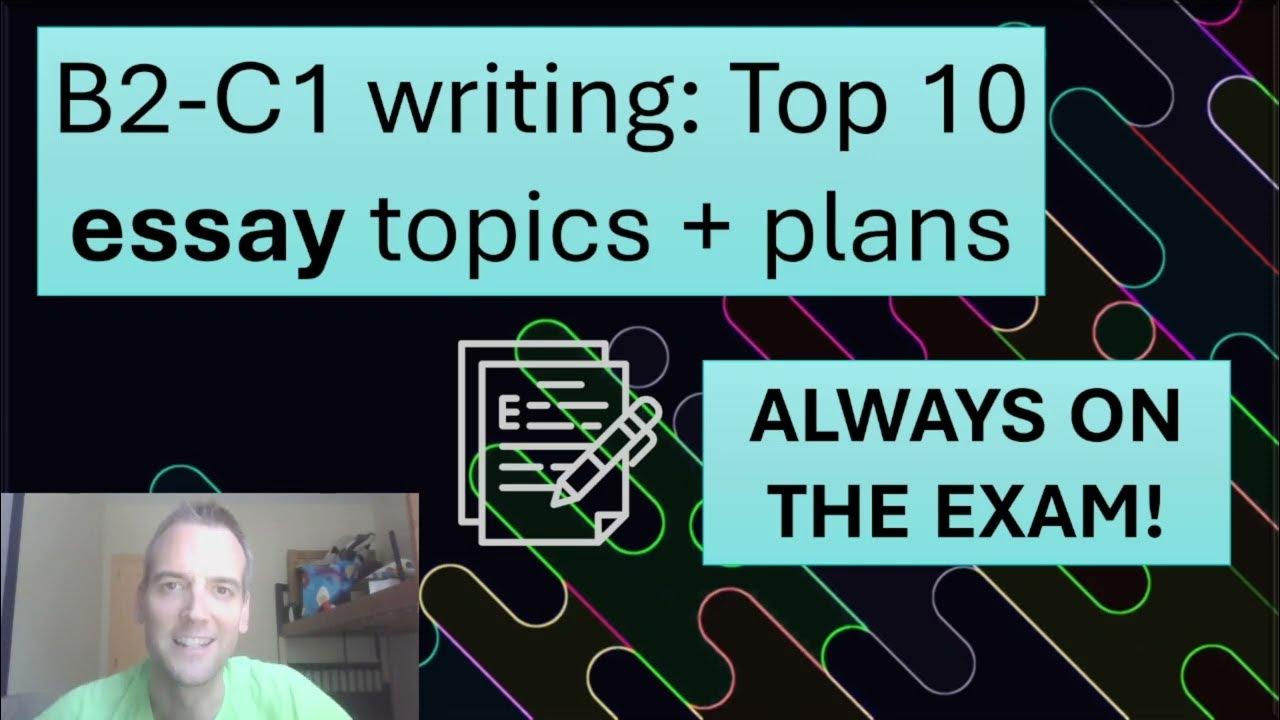How to Research Any Topic | Essay & Writing Advice
Summary
TLDRThis video guide offers practical advice for students struggling with research and essay writing. It emphasizes the importance of developing efficient research habits, managing time effectively, and balancing writing with research. The guide highlights strategies for selecting essay topics, utilizing library resources, and avoiding common pitfalls like over-researching or procrastination. It also advises students on how to build a strong argument by using a variety of sources, including counter-arguments, and knowing when to stop researching. Ultimately, the video aims to reduce anxiety and improve both the research process and academic performance.
Takeaways
- 😀 Start with a strategy: Spend 15-20 minutes identifying research resources for each topic, but don’t waste time on topics with insufficient resources.
- 😀 Be realistic about research time: Avoid over-researching and aim to gather the necessary resources without falling into the trap of endless searching.
- 😀 Don't be afraid to ask for help: Librarians can help you find resources more efficiently, so don’t hesitate to ask for assistance in the library.
- 😀 Research and writing go hand-in-hand: Start writing as you research to stay on track and avoid procrastination.
- 😀 Focus on quality over quantity: Limit your sources to four or five key materials that directly support or challenge your argument.
- 😀 Be aware of common mistakes: Avoid over-archiving or focusing solely on sources that support your argument; include counter-arguments to strengthen your work.
- 😀 Don’t start research too late: Give yourself ample time to find resources and avoid rushing through the process, as research takes time.
- 😀 Write your essay while you research: This prevents over-researching and helps you fill in gaps in your argument as you go.
- 😀 Know when to stop researching: Over-researching can lead to self-sabotage. Once you've gathered sufficient resources, move forward with your writing.
- 😀 Be mindful of resource variety: Don’t limit yourself to just one type of source. Incorporate newspapers, periodicals, and expert opinions to diversify your research.
Q & A
Why do many students struggle with research at university?
-Many students struggle with research because they are often not taught how to research effectively in school, and universities only provide minimal training, usually through a brief workshop. This lack of preparation leaves students overwhelmed by the research process.
What is one common mistake students make when choosing a research topic?
-A common mistake is selecting a research topic that does not have enough accessible secondary resources. It's important to spend 15-20 minutes researching each potential topic to ensure there are sufficient resources available before committing to a topic.
How can students manage the stress of research and writing simultaneously?
-Students can reduce stress by writing their essay as they research. This helps them integrate their findings into their argument as they go, rather than feeling overwhelmed by a huge pile of information to sort through at the end.
What role do counter-arguments play in essay writing?
-Counter-arguments are crucial as they show the depth of understanding of the topic and strengthen the essay by addressing different perspectives. Including them demonstrates critical thinking and a balanced argument.
How can students avoid wasting time while researching?
-Students should avoid getting sidetracked by irrelevant information or over-archiving. It's easy to fall into the trap of endlessly searching for more papers, but this can lead to wasted time. Focusing on key sources and managing time effectively is essential.
Why is it important to engage with a variety of sources during research?
-Engaging with a variety of sources, such as periodicals, newspapers, and government documents, ensures a more comprehensive understanding of the topic. Limiting oneself to one type of source can narrow the perspective and reduce the quality of the argument.
How should students approach reading books for their research?
-Instead of reading an entire book, students should focus on the chapters most relevant to their research topic. This targeted approach saves time and ensures that only the necessary material is reviewed.
What should students do if they cannot find enough resources for a chosen topic?
-If students can't find enough secondary sources within the first 15-20 minutes of searching, they should consider abandoning that topic. Choosing a topic with adequate research materials is key to building a solid argument.
What is a common misconception about academic research?
-A common misconception is that academic research is about being original and coming up with groundbreaking ideas. In reality, it is more about demonstrating a deep understanding of the primary text and building a well-supported argument based on existing knowledge.
How can students improve their research efficiency?
-Students can improve efficiency by setting time limits on research, staying focused on finding key resources, and avoiding the temptation to dive too deeply into unrelated areas. Research should be strategic and purposeful, not exhaustive.
Outlines

This section is available to paid users only. Please upgrade to access this part.
Upgrade NowMindmap

This section is available to paid users only. Please upgrade to access this part.
Upgrade NowKeywords

This section is available to paid users only. Please upgrade to access this part.
Upgrade NowHighlights

This section is available to paid users only. Please upgrade to access this part.
Upgrade NowTranscripts

This section is available to paid users only. Please upgrade to access this part.
Upgrade NowBrowse More Related Video

TUTORIAL DE COMO ESCREVER UM TEXTO ACADÊMICO | Dicas para fazer um bom trabalho escrito na faculdade

CNU | Texto DISSERTATIVO-ARGUMENTATIVO nota MÁXIMA [Prof. Noslen] #professornoslen #cnu #redação

Revision Webinar: Social Influence Recap and Essay Writing Advice

Essay Writing | Essay Writing UPSC/Railway/SSC | How To Write An Essay | Format/Tips/Method/Tricks

Chiến lược làm dạng bài Discussion trong IELTS Writing Task 2

Most common B2-C1 ESSAY topics
5.0 / 5 (0 votes)